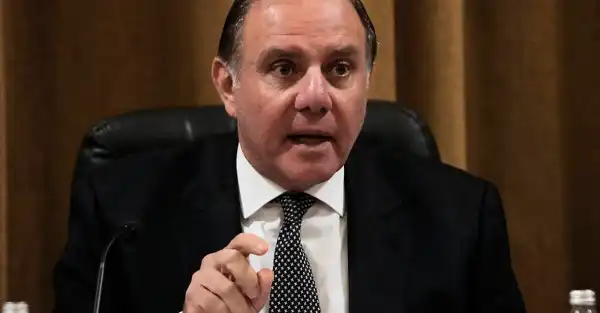
The death of former Italian Prime Minister Silvio Berlusconi has unsettled Italian politics, as the future of Forza Italia is now uncertain, and centre-right voters could migrate to conservative Prime Minister Giorgia Meloni, Professor Lorenzo Castellani told EURACTIV Italy.
Forza Italia president Silvio Berlusconi passed away on Monday after a long stay in intensive care due to chronic leukaemia. An entrepreneur and long-time politician, Berlusconi leaves behind family, friends and his party, which he founded in 1994.
Over the years, Berlusconi’s leadership has never been questioned. His words have always been decisive in the internal party balances and the government majority, even during his hospital stay.
Now, after his death, Forza Italia risks losing consensus to the advantage of its government allies – Fratelli d’Italia and Lega – despite the leadership of Deputy Prime Minister and Foreign Minister Antonio Tajani, who has been the party’s vice-president and national coordinator since 2018.
“Forza Italia is in danger of disappearing, and this will trigger a consensus split, to the advantage of the League but above all of Fratelli d’Italia. If I had to bet today, that Berlusconi’s 8% (obtained in September’s general election) will go mostly to Meloni and only a small part to Salvini”, Professor Lorenzo Castellani (LUISS Guido Carli University) told EURACTIV.
Fratelli d’Italia, on the strength of election results and polls, is a more attractive party for centre-right voters than the League, which has greater difficulty, above all, in reaching the electoral basin that was Berlusconi’s, “formed mainly by middle and lower social strata concentrated in southern Italy”.
According to Castellani, the shift of consensus in favour of Meloni will be facilitated by the opposition to the government, formed by the progressive Democratic Party of Elly Schlein and the 5 Star Movement of former premier Giuseppe Conte.
“I don’t think a Forza Italia voter can vote for Schlein. Rather, if Meloni gives a sign of openness, moving to the centre and giving weight to Forza Italia’s political will in the government programme, the liberal electorate will vote for her”, the professor explains.
“Meloni must occupy Berlusconi’s space. If she does not take this step, she risks the centrist parties taking the field”, he adds.
The centrist parties currently making up the governing majority are grouped in the ‘Noi Moderati’ political alliance, which sails around 1%. Conversely, in opposition are Matteo Renzi’s Italia Viva (3%) and Carlo Calenda’s Azione (3.8%), which until recently had united in the political project called ‘Terzo Polo’, which foundered in record time.
These dynamics are decisive in the run-up to the European elections in June 2024, when citizens will be called upon to elect their representatives in a European Parliament where current alliances will likely blow up in favour of the right-wing.
Meloni, president of the Conservatives and Reformists (ECR) group in Brussels, is already in talks with Manfred Weber, head of the European People’s Party (EPP), the political family of Forza Italia.
The possible alliance between the ECR and EPP now seems even more likely, but with a weakened Forza Italia, the EPP will also lose power and will have to leave more room for manoeuvre to Meloni’s Conservatives when alliances are discussed in Brussels.
“At the next European elections, with Berlusconi alive, Forza Italia could have taken 7% but now risks taking 3%. The party in the hands of Antonio Tajani risks halving its consensus, and the EPP will find itself with a party worth half of what it is now”, said Castellani.
(Federica Pascale | EURACTIV.it)
Read more with EURACTIV

Minister: Sweden has ‘strong support’ to join NATO in July
Source: euractiv.com



